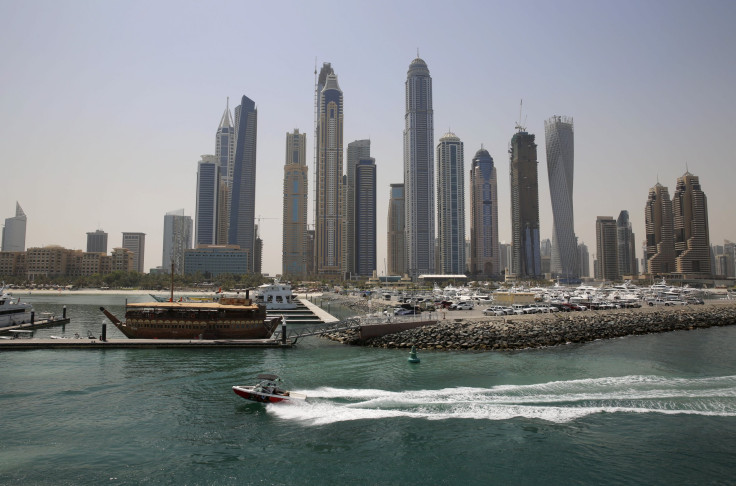China Financial Crisis: Dubai, World's Most Globalized City, Could Suffer Amid Chinese Economic Woes

Economists were watching global markets closely Tuesday amid fears that the devaluation of the Chinese yuan and the meltdown in the country's stock market could have a domino effect worldwide. In Dubai, a city-state tied heavily to the world market and China, the stakes were especially high.
“I’m sure they are [worried],” said Jim Krane, an energy research fellow at Rice University’s Baker Institute in Houston, who has written a book on Dubai's economy. “It’s such a globalized place. Dubai is the most cosmopolitan city on Planet Earth, so anything that has investors in major economic markets running scared is going to be big news in Dubai.”
Dubai, a state in the United Arab Emirates, has a diverse economy, unlike neighboring states' economies that rely predominantly on oil exports. The UAE is now the largest Middle East market for Chinese products and trade between the two countries exceeds $169 billion. And because the United Arab Emirates seeks to strengthen its economic ties with China, its second largest trading partner, some warn that the financial downturn in China has the potential to affect Dubai negatively.
There are 4,200 Chinese companies, many of them related to construction, and 356 Chinese trading agencies in the UAE. In addition, there are now more than 200,000 Chinese expatriates living in the UAE, and nearly 300,000 Chinese tourists visit Dubai each year, according to the Dubai Chamber.
Dubai's economy relies on tourism, construction and investment in its vibrant real estate sector. During the recession of 2008, Dubai’s economy suffered as Europeans left the country, but eventually recovered as Asia moved in. The real estate sector has especially sought in recent years to target Chinese investors as more Chinese expatriates have moved to the country.
“They’re very closely linked to the global economy,” Krane said. “It’s almost like a canary in the coal mine for the global economy. It’s a city-state that is so globalized that trends that affect the world at large, you can see them playing out on the ground in Dubai.”
The devaluation of the Chinese yuan could have a double-barreled effect on Dubai's economy, Krane said. On one hand, Dubai is able to import at a lower cost from China, but on the other hand, prices in Dubai, particularly property, are more expensive for Chinese buyers since the UAE dirham is pegged to the U.S. dollar.
What happened to major global stock indices, in one map. http://t.co/VG7CUdY9kT pic.twitter.com/HRBrLteaQy
— Foreign Policy (@ForeignPolicy) August 25, 2015Some analysts said the increased prices would do little to stop potential investors since Dubai remains a remarkably low-priced city compared to the more mature economies of some other major cities. “Top cities like Beijing, Shanghai, Guangzhou and Shenzhen are three times more expensive than Dubai,” Wang Liao, who owns the real estate company Atomic Properties in Dubai, told the National.
But it’s still unclear how major, or how long-term, the recent downturn of China’s markets could be. China saw sharp drops in its stock market Monday and Tuesday, with 8.5 percent and 7.6 percent falls, respectively, that sent markets globally into a downward spiral.
Akber Naqvi, executive director of Al Masah Capital, told Gulf News there’s a chance the recent market turbulence could be a “necessary correction,” and he urged caution in speculating about its effects on global markets. In the event of a recession, Naqvi said Dubai’s economy would be able to withstand it.
“It has further diversified its economy,” Naqvi said. “The dominant banking and real estate sectors are under control. There is greater synergy with Abu Dhabi and the government is committed to a spending plan that focuses on the city-state’s key strengths: aviation, tourism, logistics, etc.”
© Copyright IBTimes 2024. All rights reserved.






















